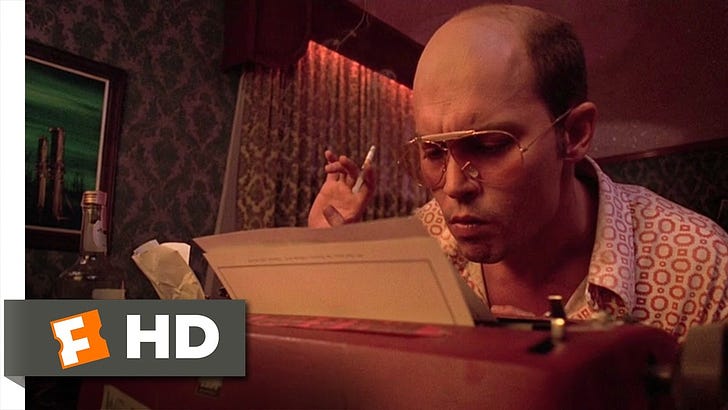The High Water Mark: Reflections on Hunter S. Thompson's Iconic Speech
From the Bay Flavor Society Series
This piece is dedicated to a great journalist and author, Hunter S. Thompson, who tragically took his own life. He unfortunately lost the battle to the demons who haunted him throughout his life. R.I.P. Mr. Thompson.
Born July 18, 1937
Died on February 20, 2005.
Introduction: In the pantheon of American literature and counterculture iconography, few figures loom as large as Hunter S. Thompson. Known for his irreverent style, fearless journalism, and unapologetic embrace of the unconventional, Thompson's work continues to captivate and inspire readers decades after its initial publication. One of his most famous pieces is the "High Water Mark" speech, delivered in the pages of his seminal work, "Fear and Loathing in Las Vegas." This essay aims to explore the significance of Thompson's speech, its broader cultural context, and its enduring relevance in today's society.
Thompson's "High Water Mark" Speech: "Strange memories on this nervous night in Las Vegas. Five years later? Six? It seems like a lifetime, or at least a Main Era—the kind of peak that never comes again. San Francisco in the middle sixties was a very special time and place to be a part of. Maybe it meant something. Maybe not, in the long run, but no explanation, no mix of words or music or memories can touch that sense of knowing that you were there and alive in that corner of time and the world. Whatever it meant. There was madness in any direction, at any hour. You could strike sparks anywhere. There was a fantastic universal sense that whatever we were doing was right, that we were winning. And that, I think, was the handle—that sense of inevitable victory over the forces of Old and Evil. Not in any mean or military sense; we didn't need that. Our energy would simply prevail. There was no point in fighting—on our side or theirs. We had all the momentum; we were riding the crest of a high and beautiful wave. So now, less than five years later, you can go up on a steep hill in Las Vegas and look west, and with the right kind of eyes, you can almost see the high-water mark—that place where the wave finally broke and rolled back."
Thompson's speech encapsulates the ethos of the 1960s counterculture movement, particularly the vibrant scene in San Francisco. He reflects on a time of great social upheaval, political activism, and cultural transformation. The era was marked by widespread disillusionment with traditional values and institutions, as well as a fervent belief in the power of youth to effect change. Thompson evokes a sense of nostalgia for a moment when it seemed as though anything was possible, when the prevailing sentiment was one of defiance and optimism.
Keep reading with a 7-day free trial
Subscribe to Versed-Well to keep reading this post and get 7 days of free access to the full post archives.



